Is there an event that defines you, that set your course for the rest of your life?
At age 83 I look back seventy-two years to such a moment, one dramatic and thanks to Google and Wikipedia and the U S Weather Bureau, easy to research and document.
The event is The Great Appalachian Storm of 1950. I was twelve years old, living in the little mountain town of Christiansburg, Virginia, near the storm’s vertex, with my father Jack Word, a self educated farmer-lawyer, and mother, Mary Word, an Alabama girl who had come to the mountains with my father reluctantly at the outbreak of the Great Depression.
We lived at 300 West Main in a clapboard house my father had bought for a $2000 note in 1933 to house his growing family (his second daughter Harriet had been born July 4). He was then Clerk of Circuit Court, having won appointment to the office when the elected clerk died in 1931. (The office paid $700 annually, low even by Depression standards but secure).
While serving as Clerk he had used the opportunity to read law under a Roanoke judge, thus expanding on his high school education. He passed the Bar in 1934. That was fortuitous, for he was turned out of public office in 1936, defeated by a Republican on anti-Roosevelt sentiment prevalent in those mountains thanks to Roosevelt’s repeal of Prohibition which had not sat well with the state’s only Republican base, Baptists and moonshiners, an unlikely three-way coalition but an effective one (Roosevelt too had lost at the local polls, although it did not block his national second-term landslide).
In 1950 my father’s solo law practice was prospering, my older sister Mary Ann would soon turn twenty one and go to work as an interpreter in the American Embassy in Paris, having finished Roanoke College at eighteen with majors in French and English and studied French further at McGill University in Montreal, and my middle sister Harriet would in the fall enter the University of Rochester.
I was enjoying Boy Scouts and farming with my father, who operated a 133 acre sheep-and-beef farm three and a half miles south of town in addition to his law practice. Plans were underway to move to the farm, plans long delayed by the War and before it the Great Depression.
My parents had settled on the design for a modest farm house, a stone ranch to be placed on a hilltop with panoramic views of the mountains of five Blue Ridge counties, Floyd to the South, Pulaski to the West, Giles to the North, Roanoke to the East, plus our Montgomery surrounding in all directions. The stone had been acquired by my father from the ruins of Fort McDonald in the nearby Ellett Valley, and would be cut and laid on weekends by a Spanish mason working at Virginia Tech. We would move there in 1952, fulfilling a long held dream of my parents.
Thanksgiving 1950 was a balmy day and we enjoyed the traditional turkey dinner. Friday morning dawned to ominous radio weather news. A non-tropical cyclone system was forming and threatening to dump huge snowfall and sub-zero temperatures on us. The storm was a Nor’easter of massive proportions. Its center low formed in the eastern mountains of North Carolina where temperatures plummeted and would spread north and south to bring Atlanta and Birmingham a record low 3 degrees F.
It would bring nearby Pickens, West Virginia a record 57 inches of wind-driven snow, -25 F and kill 151 Mountaineers and 353 humans nationally over the weekend, dropping record snows across West Virginia, Ohio, Indiana and Pennsylvania and swinging violently to the Northeast, recording winds in excess of 100 mph in New Hampshire and New York. Mount Washington would record winds of 160 mph. It was a monster.
With the warning my father and I and our Border Collie Jack drove mid-day Friday to the farm to gather our twenty beef cows and sixty ewes where they could be fed hay and watered.
Lambing would commence in a month and the cows would deliver their calves soon after. The temperature was dropping and snow spitting when we reached the farm. We drove to a hilltop at the center of the farm and released Jack the dog, directing him to the nervous ewes which had sensed something unusual was happening. Jack gathered them and started the mile drive to our barn, which stood at a point where pastures met hay fields. In an hour we had them in the barn yard and counted, none missing. Then we turned to gathering the cows, scattered farther north on the hilly bluegrass pastures.
My father was fearless in driving our 48 Dodge two-door sedan Fluid Drive over the pastures, but he had grown fearful of getting stuck in the accumulating snow and so stayed to the ridge tops. He avoided slowing where traction might be lost.
It was almost dark when Jack dog got the last of the cows in the small front pasture adjacent to the barn and with its own pond to provide water for the cows if I could manage to hack with an axe through the ice next morning. It would freeze overnight six inches thick.
With the cows safe we turned to getting the ewes into the barn and putting alfalfa hay in the mangers and buckets of water about in the barn for them to drink. They were gritting their teeth, a sound no sheep-farm boy ever forgets and no non-sheep-farm boy can imagine.
At that moment I felt a blow of incredible violence to my rear end and found myself flying through the air toward a manger, thankfully already filled with alfalfa hay which cushioned my descent. The blow was from the butt of our large Hampshire ram which had been looking for just such an opportunity since the sheep-gathering operation had begun.
While the breath was knocked out of me, no bones were broken and the only lasting damage was to my ego. I weighed 90 pounds and the ram had a ten yard start to reach my derrière so the force of his blow was not inconsequential. My father laughed heartily once he was sure I was unhurt, but he never told the story on me in my presence, though I am sure he told it frequently otherwise.
By now it was pitch dark with the wind howling and snow drifting. To drive home we must get chains on the Dodge’s rear tires. My father had been breathing with difficulty throughout our efforts with the stock and had great difficulty walking from the barn to the car, about thirty feet. He was only 53, but had several years before suffered a heart attack and was chronically short of breath, due to a two-packs-of-Camels daily habit and a weakened heart. It would be up to me to get the chains on. With thin jersey gloves I struggled lying on the ground to get them latched on after my father backed over them laid out in the snowy pasture. Fortunately it was all down hill over the quarter mile from the barn to Route 8, the road home.
That road was not yet snowplowed and visibility was minimal but we managed the drive east to town at a crawl as snow blew and drifted all around us. The kitchen and hot chocolate for me, coffee for Pops brought relief. Jack dog was welcomed into the house to praise for his work. We told mother and sister Harriet the details of our adventure. My father was exhausted. He went to bed without supper.
In bed that night I had an epiphany. My father would not live much longer. I must now think and act like a man.
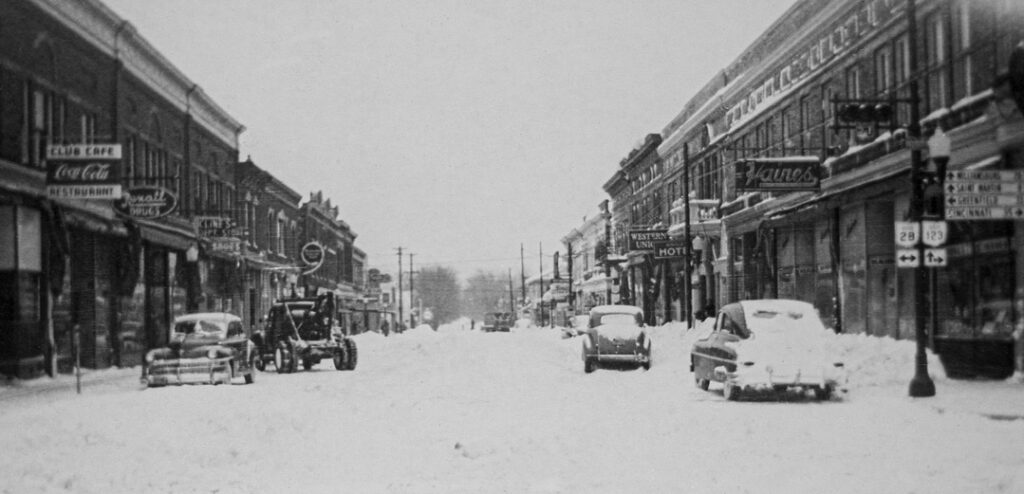
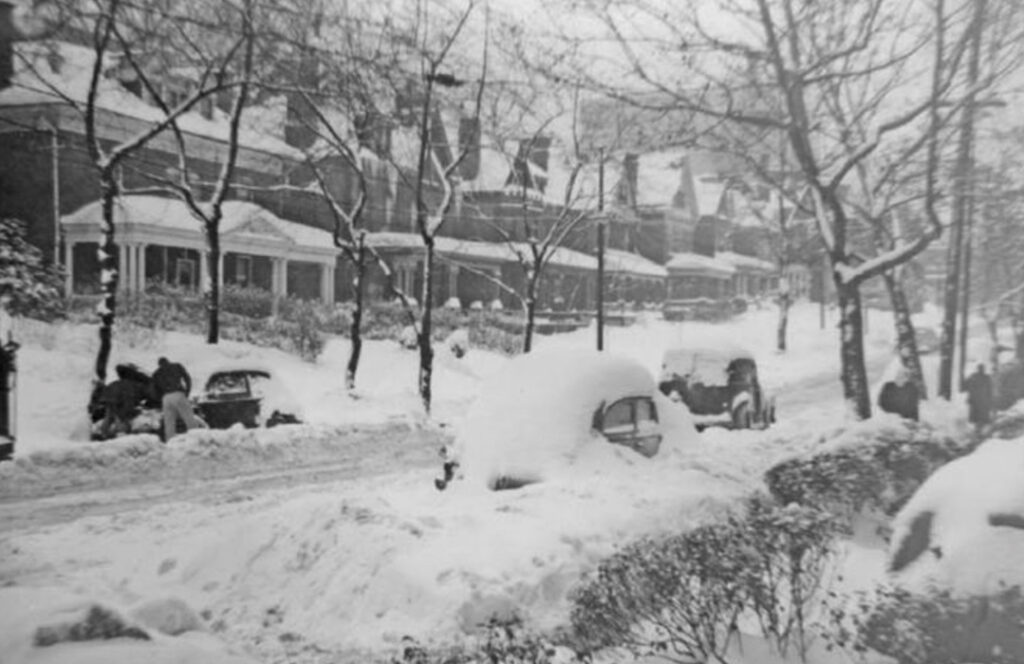
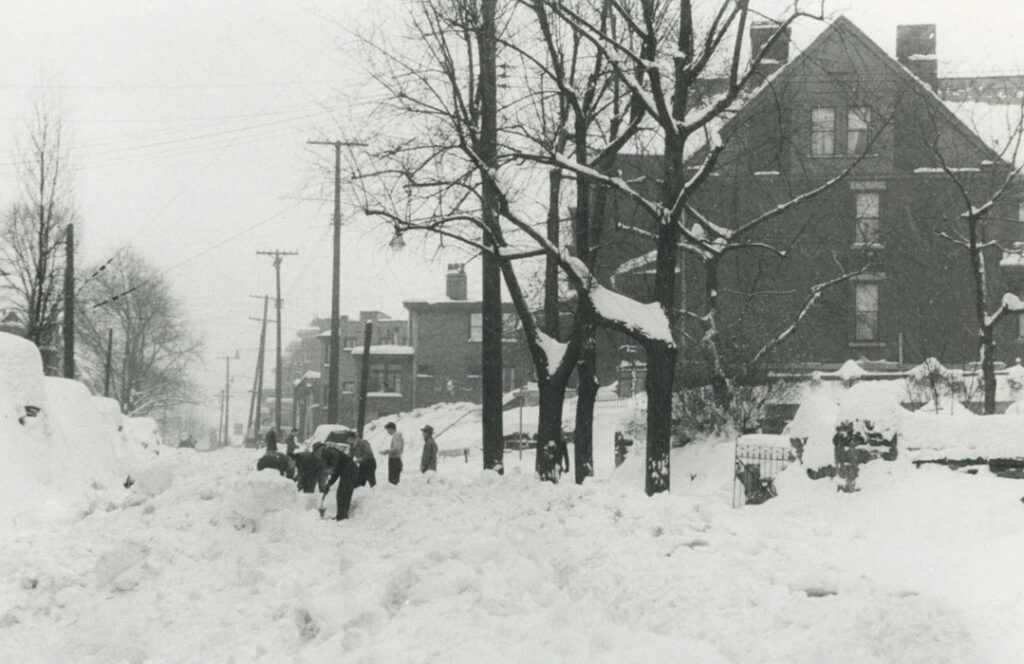
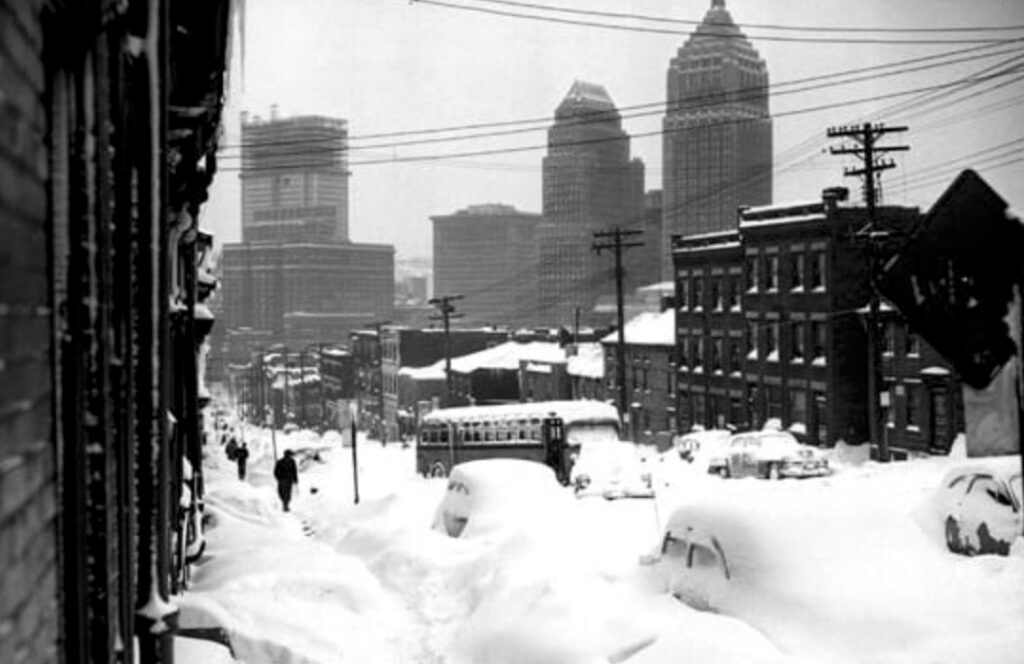
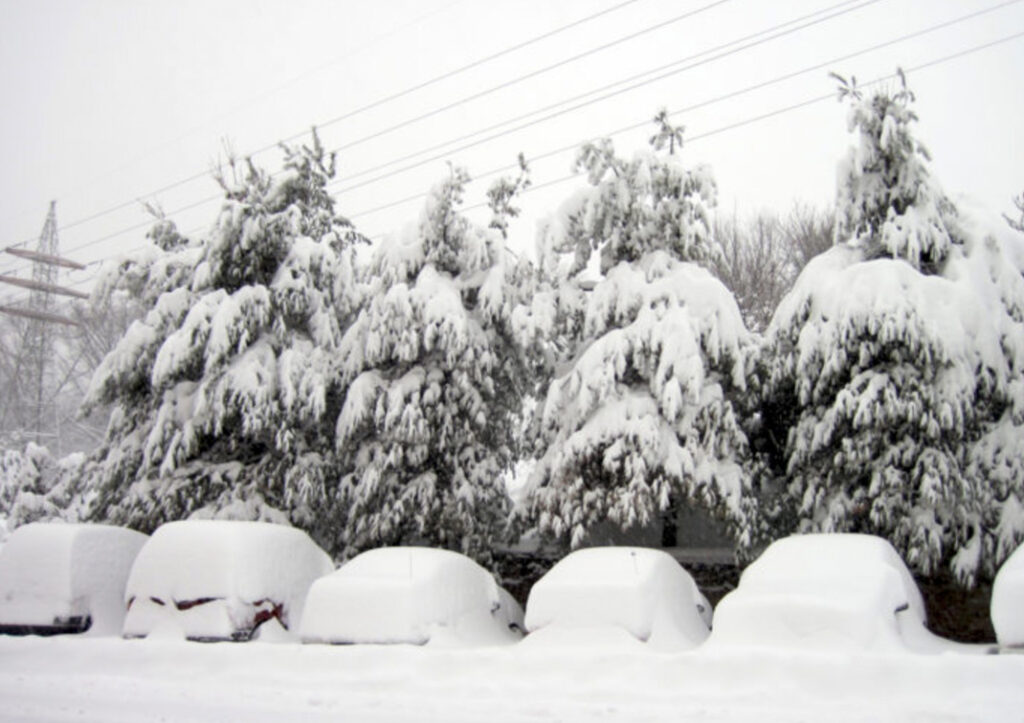
Thanks for a Great Story Tom!!!